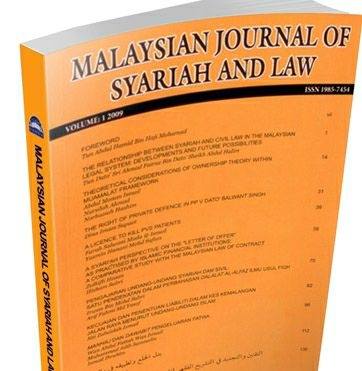دور البيئة التشريعية في تطبيق معايير الحلال في المنتجات والخدمات وملائمة النظام القانوني الليبي استرشادا ʪلمعايير الماليزية
Legal environment role on the application of Halal product and serves standards and The suitability of Libyan legal in light of Malaysian standards
DOI:
https://doi.org/10.33102/mjsl.vol6no2.149Keywords:
ملائمة البيئة التشريعة الليبية, معايير المنتجات والخدمات الحلالAbstract
Halal standards are based on religious values that are unique to other legal systems. Consequently, the legislation of the surrounding environment may have direct effects on the application of these standards, and that these effects become more complex the more the environment embodied in the contents clash with the Shariah-based Halal. In order to show the importance of the Halal sector in both religious and investment aspects, this paper examined the contribution of the legislative environment to Halalization and how Halal standards could be adopted in the products and services by the existing legal systems of the countries that have not adopted them, through comparison between legal systems. The paper used the Libyan legal system as a case study because its system is less concerned about Halalization. After analyzing the laws related to Halal products and services, it was found that the Libyan legislative environment is rich with the contents of Halalization; even if the Halalization is not codified in the contemporary concept just as stated in the Malaysian standards that the paper adopts as a criterion for the comparison, it implicitly includes most of the contents of these standards. The paper recommends that the Libyan system should adopt the Halal standards to benefit from this sector.
Downloads
References
Law No. 7 of 1372 on tourism
Law No. 9 of 2010 on the promotion of the investment.
Prohibition of Alcohol Act of 1974
Law of Libyan Commercial Activity No. 23 of 2010
Economy and Trade ministry decision No. 16 of 2006 on the regulation of imports.
The Export and Import Executive Regulations of the Commercial Activity Law No. (23), 2010, book no eight by decision no 2012
Tourism Minister Decision No. 6 of 2004 regarding the classification of tourist facilities
slaughterhouses Regulation No. 3 of 1960.
Agriculture ministry decision No. 104 of 1968. On the importation of food.
The Implementing Regulations of Law No. 59 of 2012 Concerning Municipalities.
Council of Ministers decesion No. 149 of 2006 regarding the establishment of the Municipal Guard.
Law No. 56 of 1970 on the protection of public morals
Libyan Penal Code.
Malaysian Trade Description Act 1975.
Malaysian Trade Description Act (730) 2011.
MS 1500:2009, Halal food – production, preparation, handling and storage – general guidelines (second revision) ICS: 67.020.
MS 2610:2015, Muslim friendly hospitality services – Requirements, ICS: 03. 120.01.
Mohamed Battour & Mohd Nazari Ismail. (2015). Halal tourism: Concepts, practises, challenges and future, Tourism Management Perspectives, http://dx.doi.org/10.1016/j.tmp.2015.12.008.
Yumi Zuhanis HAS – Hashim. (2013). Halal, All that you need to know, Vol 1 INHART IIUM Kuala Lumpur.
Bull Koshran. (2016), The challenges of halal Jelatin industry, 30 April, retrieved on 17 January 2018 from: https://www.salaamgateway.com
Ashr´f Abdul Malik. (2008). Haccep system for food safety. Asuot Journal for environmental studies, No 32.

Downloads
Published
Issue
Section
License
Copyright (c) 2018 Ahmed Salem Ahmed

This work is licensed under a Creative Commons Attribution-NonCommercial 4.0 International License.














































